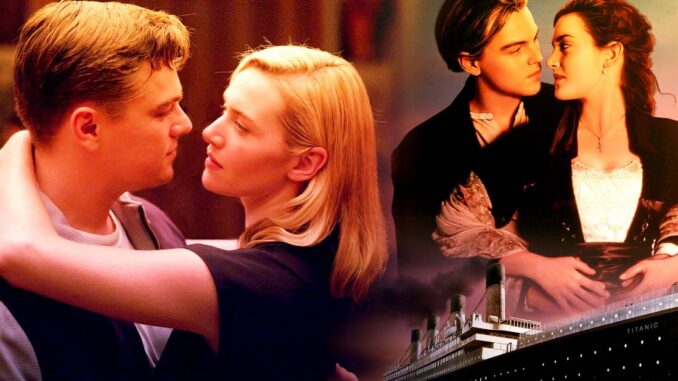
Titanic Stars Reunite in Revolutionary Road Years Before You Knew It
The cultural leviathan that was James Cameron’s Titanic did more than just sink a ship; it launched two careers into the stratosphere and etched an indelible, almost mythic, love story into the collective global consciousness. Leonardo DiCaprio and Kate Winslet, as the spirited Jack Dawson and the defiant Rose DeWitt Bukater, became the quintessential cinematic couple, their chemistry a volatile, breathtaking mix of youthful passion and desperate hope. For years, the very idea of "Jack and Rose" conjured images of windswept decks, forbidden glances, and a tragic, icy fate. What many did not realize, however, until years after the fact, was that these iconic stars would reunite, not in a fantastical epic, but in a quietly devastating drama, a full decade before their shared legacy truly settled into its historical context. Revolutionary Road, released in 2008, offered a reunion that, in its stark contrast to their first collaboration, proved to be a profound and surprising revelation of their matured artistry.
The shadow cast by Titanic was long and pervasive. For a generation, Leo and Kate were synonymous with that grand romance. Their performances were raw, immediate, and utterly captivating, perfectly encapsulating a love that defied class, convention, and the very laws of physics as the ship went down. Audiences clung to the beautiful impossibility of Jack and Rose, fostering a subconscious desire for a sequel to their fairy-tale, even as their story had irrevocably concluded. This potent, almost singular association made it difficult for many to readily embrace the idea of their reunion, especially in a film that promised no epic sweeps, no grand gestures, and certainly no happy endings.
When Revolutionary Road quietly premiered, directed by Winslet’s then-husband Sam Mendes, it landed in a different cinematic landscape. Gone were the dazzling effects and historical grandeur. In their place was the claustrophobic, pastel-washed suburbia of the 1950s, a setting as far removed from the ill-fated liner as possible. Here, DiCaprio and Winslet were no longer youthful lovers seizing moments of freedom; they were Frank and April Wheeler, a couple suffocating under the weight of unfulfilled dreams and the crushing monotony of their "normal" lives. The initial reaction, for many, was not one of recognition of a grand reunion, but rather a quiet appreciation for a well-made, albeit bleak, character study. The historical distance was too short, the association with Titanic too strong, for the significance of their coming together to truly register on a widespread scale. It was less a reunion and more a re-casting, a subtle, almost clandestine return to shared screen space.
Yet, it was precisely in this unexpected context that their reunion shone most brilliantly. Frank and April Wheeler were the antithesis of Jack and Rose. Their love was not fresh and blossoming, but withered and resentful, choked by unspoken grievances and shattered illusions. The magic was gone, replaced by a brittle familiarity that bordered on contempt. Winslet, as April, delivered a performance of devastating vulnerability and frustrated ambition, a woman chipping away at the confines of her life. DiCaprio, as Frank, portrayed a man both weak and calculating, trapped by his own mediocrity. Their shared scenes were not about longing glances and passionate embraces, but about searing arguments, forced smiles, and the chilling silences that speak volumes. Their chemistry, which once radiated warmth and hope, now crackled with a desperate, painful authenticity, illuminating the slow, agonizing death of a dream.
The revelation came later, as Titanic became not just a blockbuster but a cultural artefact, and as Revolutionary Road gained retrospective appreciation for its searing portrayal of domestic despair. Suddenly, looking back, the significance of Frank and April Wheeler became undeniable. It wasn't just two actors sharing the screen again; it was them. It was Jack and Rose, matured, scarred, and utterly transformed. The realization hit that the same two individuals who had once epitomized youthful idealism could now so convincingly embody the crushing weight of disillusionment. Their comfort with each other, their deep understanding of each other's acting rhythms, allowed them to plumb depths that might have been inaccessible to other pairings. They could push each other to raw, unvarnished emotional places, trusting that the other would meet them there.
In essence, Revolutionary Road served as a quietly profound sequel to the unwritten lives of Jack and Rose, not literally, but thematically. It explored what might happen when the grand romantic gestures fade, when the promises of escape turn into the bitter realities of routine, and when two souls who once soared together find themselves trapped. Years before the public fully processed their enduring on-screen partnership, Winslet and DiCaprio had already reunited, not to recreate a myth, but to bravely dismantle one. Their collaboration in Revolutionary Road stands as a testament not just to their individual prowess, but to the extraordinary, evolving power of their shared artistic journey – a journey that had already, almost secretly, traversed the distance from the ice-kissed deck of a sinking ship to the suffocating embrace of a suburban home.